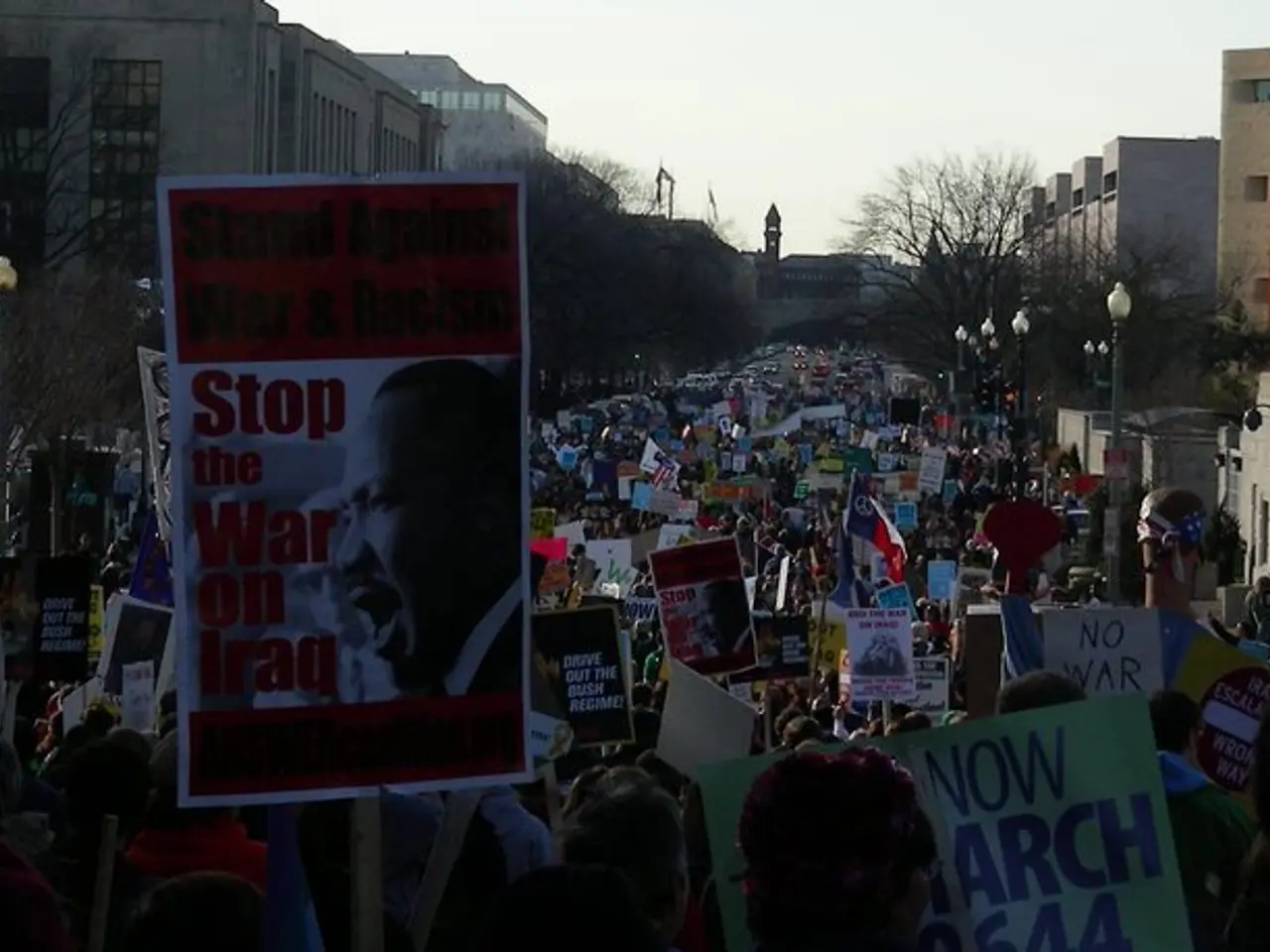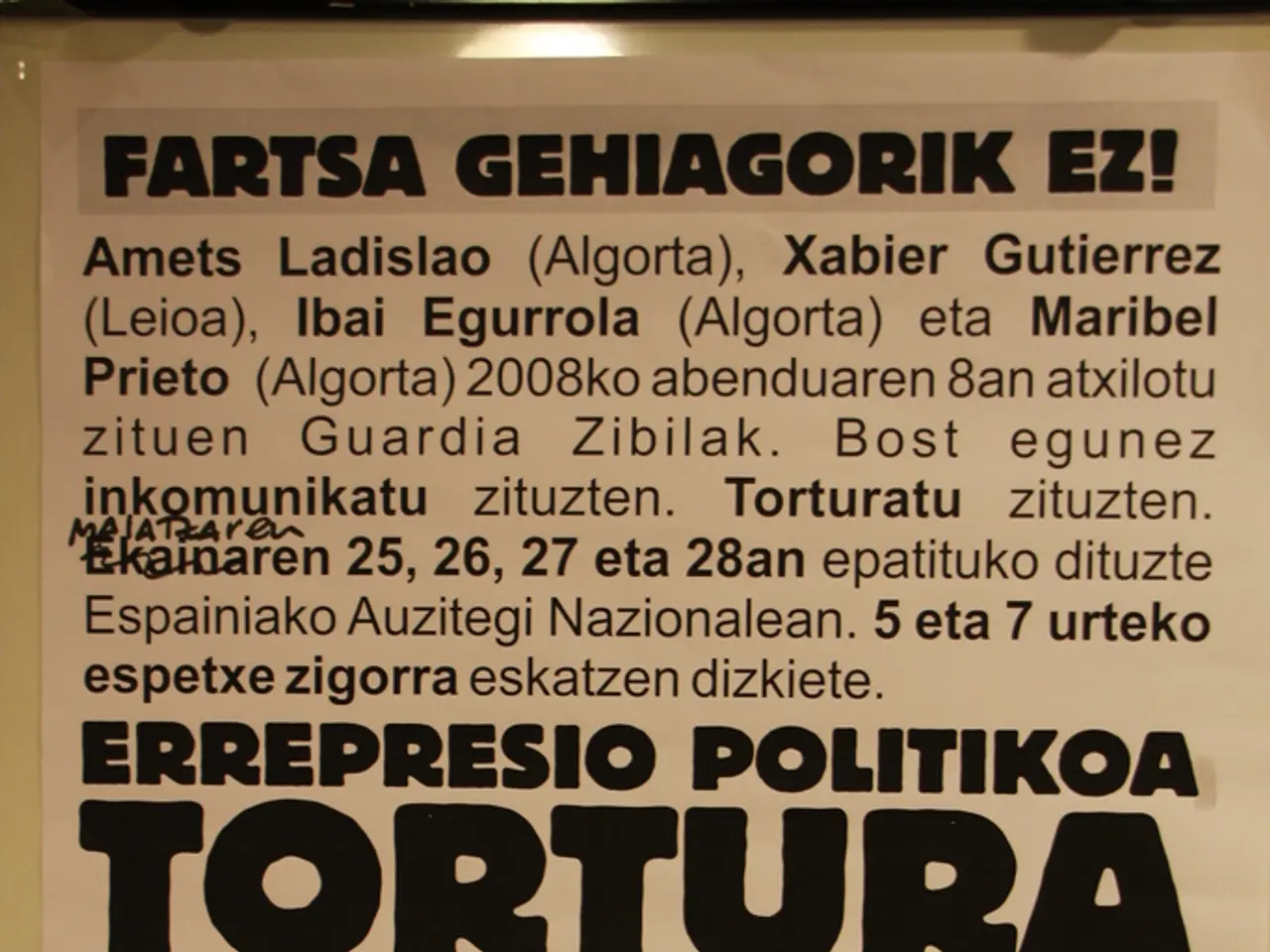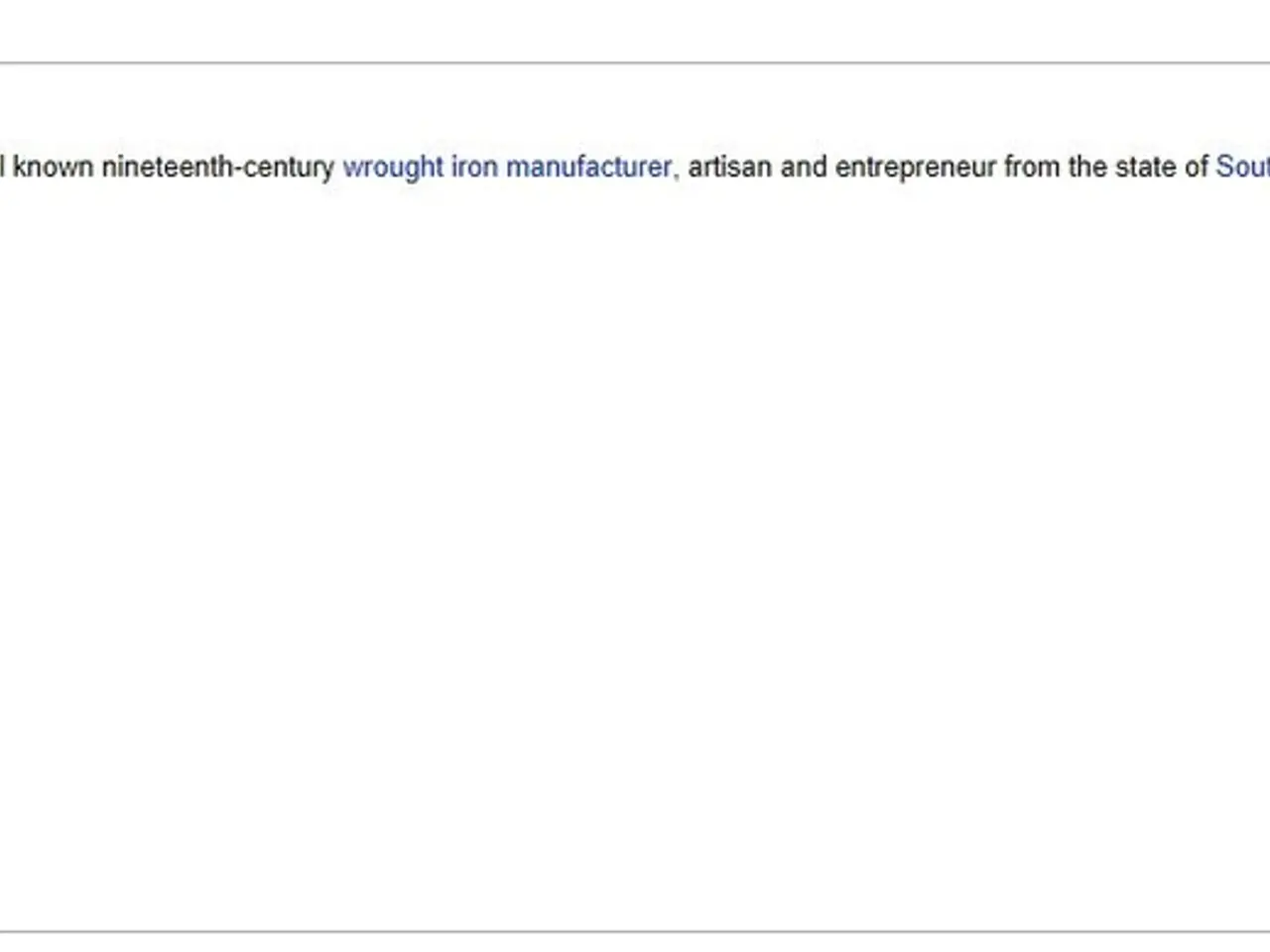Cabinet Meeting Dispute: Orit Strock and Aryeh Deri Engage in Vocal Argument Regarding Hamas Accord
In the heart of Israeli politics, a heated debate is unfolding over the release of hostages held by Hamas. The latest confrontation took place between Settlement Minister Orit Strock and MK Aryeh Deri, with Minister Bezalel Smotrich and Minister Avi Dichter also weighing in on the issue.
The focus of contention revolves around the nature and timing of a potential deal. Prime Minister Netanyahu has made it clear that the priority is securing the release of all hostages at once, rather than accepting a partial or phased release. He has dismissed the idea of a partial ceasefire or partial deal, stating that it is "behind us."
Netanyahu's stance is supported by some officials who link the total release to broader ceasefire or withdrawal terms. On the other hand, some right-wing figures, including Orit Strock, are critical of any approach that might concede territory or accept a gradual release, preferring a military approach without compromise.
MK Aryeh Deri, as leader of Shas and a key coalition figure, has occasionally represented a more pragmatic stance. However, specific points of contention with Strock or Netanyahu on the precise hostage deal strategy have not been elaborated in the articles.
Public protest by hostage families and some Israeli groups calls for urgent, clear hostage return deals, sometimes criticizing cabinet decisions that expand military operations risking hostages’ lives.
The debate has also seen strong opinions from other ministers. Minister Smotrich, for instance, criticized the military, saying, "If it takes three months and three brigades because of the explosives - you are criminals. This is the result of previous deals." He also voted against the proposed plan.
Meanwhile, Minister Dichter suggested that the destruction of a Gazan City could be a strategy to defeat Hamas. This suggestion was met with criticism from Minister Smotrich, who questioned the morality of such a move, stating, "Is it moral for a hundred soldiers to be killed, and then for us to retreat for ten hostages?"
The diplomatic-security cabinet had a meeting to discuss the issue, and Prime Minister Netanyahu assured Minister Smotrich that Hamas would eventually be defeated. He received support from Likud ministers to move forward with the plan.
The Israeli negotiation team returned from Doha, but mediators have rejected Hamas' response to the ceasefire offer. Despite international pressure undermining ceasefire efforts, the debate within Israel's coalition continues, with MK Aryeh Deri asserting that if Hamas offers a deal, Israel must stop and examine it.
However, MK Aryeh Deri later retracted his statement, stating that the hostages are civilians, and we must save their lives. The confrontation between Strock and Deri remains a significant point of discussion, underscoring the deep divisions within the Israeli government over the hostage release negotiations.
The ongoing debate in Israeli politics, primarily centered around war-and-conflicts, includes intense discussions about the release of hostages held by Hamas. This discussion encompasses various aspects of politics, including general-news and crime-and-justice. (The nature and timing of a potential deal)
Minister Smotrich's critique of the military and his vote against the proposed plan, as well as Minister Dichter's suggestion for the destruction of a Gazan City, demonstrate the wide spectrum of opinions and strategies being considered in this conflict, further highlighting the connection between war-and-conflicts and politics. (Minister Smotrich criticizing the military, Minister Dichter suggesting the destruction of a Gazan City)







